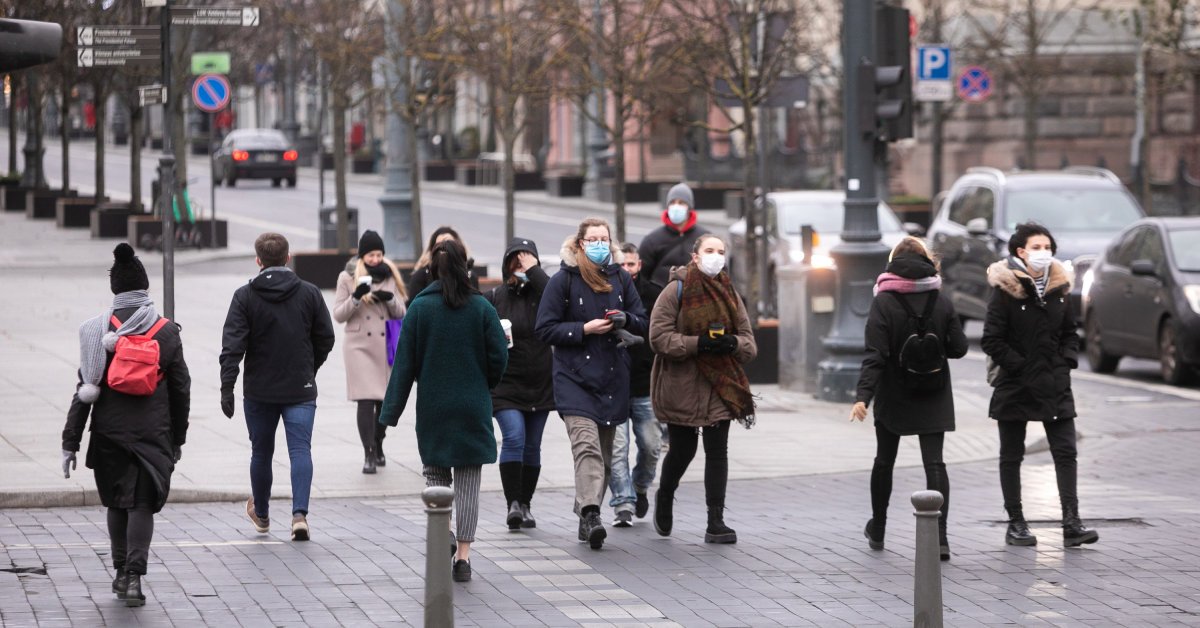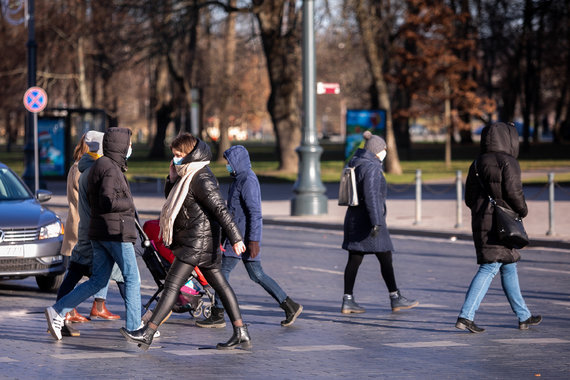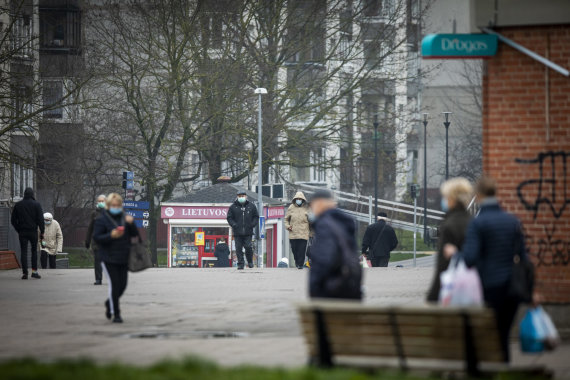
[ad_1]
The study analyzed the reasons for declaring a state of emergency, the powers of state institutions, restrictions on human rights, and issues of liability for non-compliance.
This is the first comprehensive assessment of its kind of the practice of Lithuanian institutions during the pandemic from the point of view of Lithuanian constitutional law and international law. The study also reviews the administrative aspects of managing a pandemic and provides recommendations for improving the management model. The researchers also focused on the efficiency aspects of decisions made by the state about the use of public finances during the pandemic.
“The results of interdisciplinary research clearly show that in crisis management such as the COVID-19 pandemic, it is not enough to listen only to the opinion of health experts, it is necessary to involve legal, economic and management experts in decision-making . This would help strike a balance between society and individual interests. Otherwise, the state will not be able to avoid or reduce the long-term negative consequences: litigation, economic crisis and ineffective financial management, ”says Lyra Jakulevičienė, professor at MRU, head of the research project.
Some restrictions on rights did not comply with the principle of legality
Legal analysis of the solutions applied during the COVID-19 pandemic showed that the Lithuanian authorities had adequately qualified the situation: there was no reason to declare a state of emergency in the spring.
“According to experts, the threat to public health is not in itself a constitutional basis for declaring a state of emergency in the state as long as the threat to health does not represent a threat to the constitutional order or the seriousness of society” , emphasized Professor L. Jakulevičienė.

Sigismund Gedvila / 15min photo / Continuous quarantine in Vilnius
The professor emphasized that while the government acted within the mandate it was given when announcing the quarantine regime, its decisions were not subject to parliamentary scrutiny, which is especially important when the decisions have a significant impact on the rights and freedoms of people.
In addition, the restrictions of some rights at the time of their establishment did not comply with the principle of legality, that is, there was no legal basis for it, and that basis was provided only in the Laws of Civil Protection and Prevention and Control of Diseases Transmissible. One of the requirements for restricting fundamental human rights in accordance with Lithuanian constitutional and international law is that such restrictions must be directly and clearly stated in law. During the investigation, it was established that this requirement was not always met, ”says L. Jakulevičienė.
Although the restrictive measures imposed by government decrees pursued constitutionally justified and legitimate objectives, the researchers found that some measures that restricted freedom of movement through mandatory isolation, freedom of economic activity, such as the prohibition of commercial activities, medical care other than emergency medical care, the provision of certain medical care throughout the state and the non-anonymity of the places visited by infected people, the prohibition of visits to prisons pending quarantine and some other measures that did not comply with the requirements of the Constitution and international law.
One of the requirements for restricting fundamental human rights under Lithuanian constitutional and international law is that such restrictions must be directly and clearly established by law, – says L. Jakulevičienė.
“The right to judicial protection was generally available during the first quarantine period, but the security of the transmission of the case data and the provision of physical protection to the courts were insufficient. It is important to note that in civil liability proceedings for damages derived from the application of restrictive or prohibitive measures, in particular the causal relationship and the fact and scope of the damage, the law will be applied in light of the facts of the individual situation. for non-application or exemption from liability civil ”, highlighted the MRU professor.
The number of complaints may increase
The authors of the study point out that there are already complaints from natural and legal persons about the measures taken by state authorities, which may have disproportionately restricted or even denied certain human rights.
“All the measures adopted by the State must be based on the need to protect the democratic order from threats and be proportionate. The requirement to observe the principle of constitutional proportionality presupposes, among other things, the requirement to establish such legal regulation that creates the preconditions for sufficient individualization of restrictions on individual rights and freedoms, evaluating the individual situation of each person to the greatest extent possible, ”said the Ombudsman of the Seimas, coach Vytautas Valentinavičius.
“The experience of other countries shows that the number of these complaints may increase even more in the future, and the state may have a financial burden to compensate for possible violations,” he commented.
All measures taken by the state must be adopted due to the need to protect the democratic order from threats and are proportionate, – commented V. Valentinavičius.
Other countries have achieved similar results to Lithuania with softer measures.
A comparative analysis of coronavirus control measures applied in Lithuania and abroad revealed that in Lithuania the restrictions during the first pandemic wave were among the most stringent to assess the dependence of the severity of the restrictions on the number of COVID infections -19.
Similar results of pandemic management in Lithuania are likely to be achieved by applying less stringent restrictive measures, at the same time with less negative consequences for the Lithuanian economy and population.

Photo by Sigismund Gedvila / 15min / Continuous quarantine in Vilnius
An assessment of the consequences of the pandemic and the measures taken to manage it revealed that Quarantine restrictions introduced in March had a negative impact on many sectors of the Lithuanian economy, although many of these sectors recovered later in the summer. The restrictions also led to a significant decrease in the turnover of Lithuanian companies engaged in export, catering and beverage activities.
Due to the suspended economic activity of many companies, the number of hours worked by employees decreased significantly, and during the quarantine period and in the months that followed, unemployment among the Lithuanian population increased significantly. The attached data shows that unemployment in Lithuania grew faster than in other EU countries and one of the reasons for this is probably the inadequate implementation of business support measures.
Wage subsidies should be maintained, but safeguards are needed
The study showed that without additional financial support from the state to companies, individuals or other entities, the surveyed countries would have faced greater economic consequences.
Statistical analysis shows that the measures taken by different countries, such as rent, part of electricity, etc. similar services, bank deductions, tax arrears, tax exemptions for certain health services, even for those who are not entitled to them, compensation for student loans, etc.) have not had a positive effect on the country’s economy, since many of These measures are linked not only to an economic aspect but also to a social aspect, so the application of these and similar measures should be discussed in terms of redirecting financial resources towards other state support measures.
Wage subsidies have paid off
Almost every country in the world has used wage subsidies as one of the main instruments of financial support, and this has probably been the best means of stabilizing the economy in the short term. Analysis of Lithuanian statistics showed that the responsibilities of employers who were paid a wage subsidy did not increase or increase insignificantly, even after their income decreased.

Photo by Luke April / 15 minutes / Quarantine in Vilnius
Thus, the subsidy received was beneficial and covered the cash flow for that period. However, some companies did not attempt to take advantage of wage subsidies paid in good faith. It is advisable to maintain wage subsidies, since they have been the main measure to mitigate the negative variation in GDP, but to provide safeguards: maintain the employer’s commitment to maintain subsidized employment for a specified period; not subsidize the wages of newly hired workers; not increasing the subsidy paid after the re-announcement of downtime; pay the grants only after an analysis of the solvency of the potential beneficiary, regardless of the particularities of the activity sector; Do not differentiate the subsidy according to the nature of the contract.
To date, no restrictions have been imposed on participation in the different support schemes, so companies that have also received a wage subsidy have been able to defer both the payment of taxes owed and other aid. It is advisable to provide safeguards or establish the maximum amount of support that can be obtained, provided that the activities of the company are not strictly limited by the quarantine conditions; or the number of measures in which the company can participate as a beneficiary.
The study was carried out according to the project „Evaluate legal, administrative and economic solutions to emergencies: find a balance between public safety and human rights ”. The study was conducted by specialists in law, administration and finance from Mykolas Romeris University. The project financed by LMT (project Nr. S-COV-20-28).
The objective of the project was to carry out an ex post evaluation of the legal framework for the management of emergencies due to communicable diseases, the effectiveness and financing of public policies in this area, identify gaps and deficiencies, and propose a regulatory, management and financing model for more effective emergency management and protection of human rights. , the functioning and coherence of democratic institutions with the requirements of the Constitution, international law and best practices in public administration.
[ad_2]